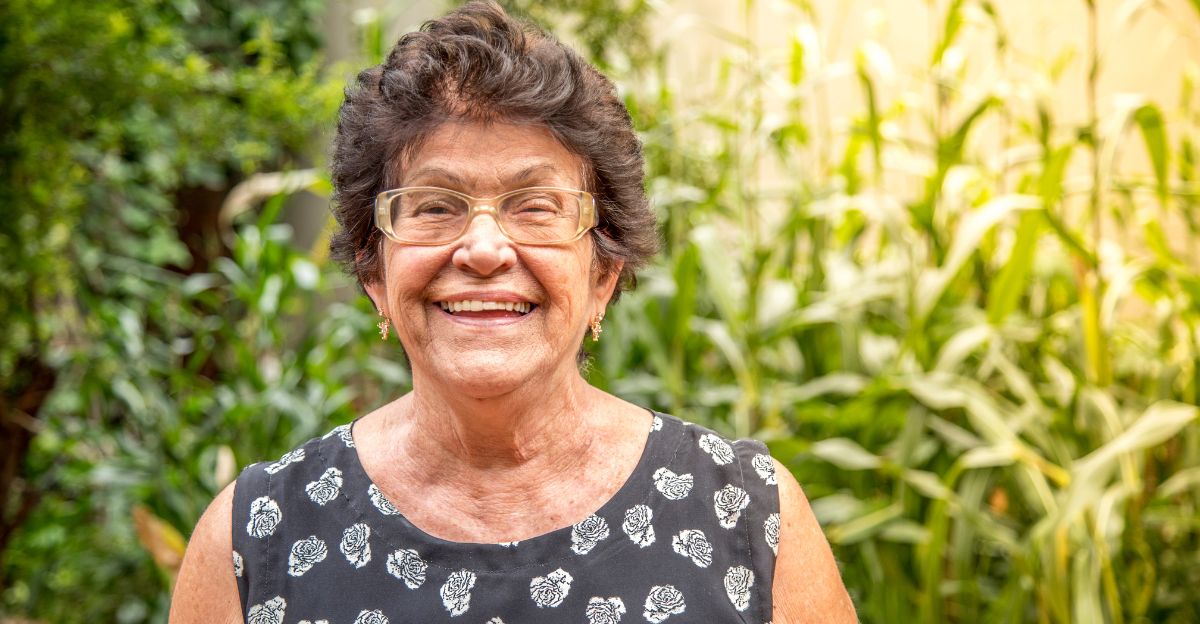
Hitting 60 isn’t the end of the road; it just comes with a new set of challenges. Things that used to be second nature can start feeling a lot tougher if you’re not ready for them.
Whether it’s money, relationships, or even just your day-to-day independence, how well you handle life after 60 really depends on the planning you’ve put in beforehand. Let’s take a look at 19 things that become almost impossible after 60, unless you’ve prepared.
1. Getting Out of Debt

Debt hits a lot harder after 60 than it does earlier in life. With retirement income usually fixed, interest piling up quickly, and less time to bounce back, it can feel overwhelming.
Carrying credit card debt, loans, or a mortgage into your later years doesn’t just affect your budget; it also robs you of peace of mind at a stage when stability matters most.
2. Finding New Career Paths

Changing careers after 60 is a lot harder than it sounds. Employers don’t always value decades of experience, and old colleagues might be retiring instead of helping you network. On top of that, the physical or mental demands of a new role can limit your options.
If you didn’t start laying the groundwork in your 50s, the chances for a big career shift shrink significantly. For most people, “reinventing yourself” later in life only works if you’ve been easing into that reinvention well before.
3. Traveling Lightly

Traveling is one of the big retirement dreams, but after 60, it can be very challenging. Insurance costs more, energy levels aren’t the same, and health issues can’t be ignored.
Hauling luggage through airports or figuring out new cities can turn into a real challenge. Without planning for things like insurance, budget, and health needs, what should feel like freedom can end up feeling morestressful.
4. Rapid Healing

One of the most noticeable changes after 60 is how the body heals. Cuts, surgeries, sprains, or illnesses take significantly longer to recover from than they did in your younger years.
A minor mishap at 30 could put you back on your feet in days; at 60, it may last weeks or months.
5. Financial Independence

Financial independence is harder to maintain after 60 unless you’ve established a strong base. Rising living costs, medical expenses, and reduced income streams pile on quickly.
Without savings or a retirement plan, dependence on children, extended family, or government programs becomes unavoidable. For a lot of retirees, dignity and peace in later years are secured only through preparation decades earlier.
6. Learning New Tech Effortlessly

Technology keeps advancing at an incredible pace. For people who stay curious and adaptive, each new gadget is manageable. But if you avoided modern trends in your 40s and 50s, the leap at 60 feels massive.
Smartphones, smart homes, and digital banking can become intimidating barriers without prior practice, sometimes pushing older adults into unnecessary isolation.
7. Driving at Night

Driving becomes more difficult as you age, especially after dark. Your eyes might adjust more slowly, the glare from headlights could become harsher, and reaction times decline.
By 60, these changes can turn nighttime driving into a stressful or even dangerous situation. Unless you’ve already adjusted your habits, updated your vision care, or prepared alternative transportation, late-night freedom often shrinks without warning.
8. Downsizing Your Home

Decades of belongings stack up faster than anyone realizes. Downsizing at 60 or older is emotionally draining, physically exhausting, and logistically overwhelming.
Sorting boxes of memories while struggling with the physical act of moving can paralyze even the most organized people. People who plan ahead by gradually decluttering or downsizing earlier in life enjoy smoother transitions into simpler, more manageable spaces.
9. Making New Best Friends

Sadly, friendship changes with age. Many social connections come from work, kids’ school years, or casual community ties, and these often fade after 60. Making new lifelong friends becomes harder as circles shrink.
Without cultivating hobbies, joining groups, or prioritizing community earlier, loneliness can creep in. Building strong social bridges before 60 ensures companionship remains accessible later in life.
10. Sleeping Soundly

Deep, restful sleep becomes harder after 60. Hormonal changes, stress, and physical discomfort mean that even spending eight hours in bed doesn’t guarantee refreshment.
Nighttime interruptions like bathroom breaks, restlessness, or aches are way more frequent in your later years. Better sleep in later years often depends on decades of maintaining good habits: exercise, diet, and routines that support rest long before sleep problems intensify.
11. Caring for a Spouse

Aging often comes as a pair. When one spouse needs care, the other might already be facing physical decline or limitations themselves. Managing medications, mobility help, and emotional stress without preparation can quickly overwhelm a person.
Unless families arrange support systems, caregiving later in life can erode health and happiness for both partners, leaving once-strong households struggling under pressure.
12. Adapting Diet Flexibly

Once you’re past 60, a lot of health issues start calling for diet changes like less sugar, less salt, or foods tailored to certain nutrients. The tricky part is that habits that have been built over decades are hard to break.
That sweet tooth, love of big meals, or late-night snacking might not have mattered much before, but now they can take a real toll on your body. People who already practiced balanced, flexible eating earlier in life usually find the switch a lot smoother, and a lot less frustrating.
13. Moving to a New City

After 60, moving to a new place feels less like an adventure and more like a burden. It often means saying goodbye to trusted doctors, close friends, and the comfort of familiar surroundings.
Research shows that as people age, they’re less likely to relocate, even if their homes no longer work well for them. Without planning a move earlier, many people end up staying put in spaces that don’t really suit their needs anymore.
14. Keeping Up with Grandkids

Grandchildren bring energy, laughter, and joy. They also bring the kind of nonstop movement that only youth can provide. Playing tag, lifting toddlers, and chasing them around gets increasingly difficult after 60.
A lack of physical fitness intensifies the gap. Grandparents who stayed active earlier keep up more easily, while others may watch from the sidelines, wishing they could participate fully.
15. Starting a Business

Entrepreneurship flourishes on energy, networks, and risk-taking, which are qualities that are harder to sustain past 60. Starting from scratch without groundwork means long hours, steep technology hurdles, and limited investment timeframes.
Some succeed, but it’s harder. Those who cultivated ideas, relationships, and financial cushions earlier manage better.
16. Avoiding Loneliness

As your friends move away, your family becomes busier, and your loved ones pass away, loneliness slowly creeps in. By the time you hit 60, social opportunities shrink without deliberate effort. Luckily, community clubs, hobbies, and gatherings you became a part of in your earlier years can protect against this.
Without those, many people face empty weeks and health risks linked to isolation. Connection is possible, but it requires preparation well before you reach 60.
17. Staying Spontaneous

Spontaneity relies on good health, solid finances, and plenty of flexibility. After 60, jumping into last-minute trips, new hobbies, or adventures gets trickier. Medications, physical limits, or tighter budgets can all get in the way.
If you haven’t built up savings, taken care of your health, and surrounded yourself with supportive people earlier on, that carefree ability to just say “yes” starts to slip away. It’s often one of the first little joys to disappear without preparation.
18. Handling Emergencies Alone

A fall, sudden chest pain, or even a household accident carries way bigger risks after 60. When you’re younger, recovery is fast and independence is strong.
Later, these emergencies can spiral quickly into crises without backup plans. Neighbors, medical alert systems, and strong family connections can help. Without them, emergencies too often become tragedies instead of setbacks.
19. Maintaining True Independence

Independence after 60 might be the greatest treasure of all. Yet it only survives with planning: health habits that keep the body strong, savings that cover emergencies, and relationships that prevent loneliness.
It is nearly impossible to craft independence late in life if you’ve never prioritized it. Every choice before 60 builds or undermines the freedom you’ll enjoy later.